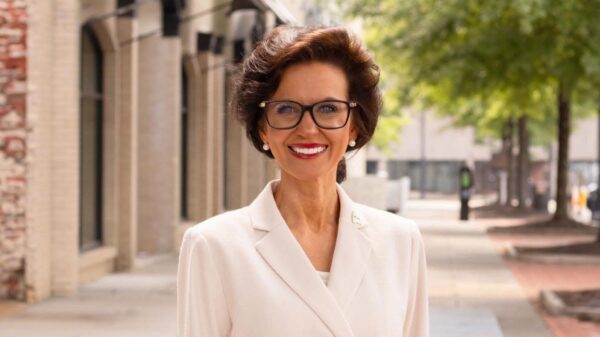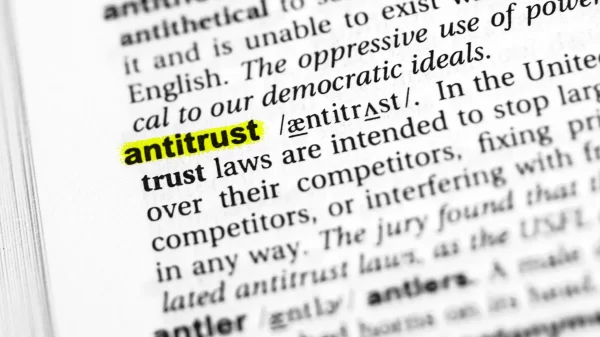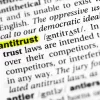On Wednesday, proponents of House Bill 317 argued before the Senate about passing the legislation that would exempt economic developers from Alabama’s landmark 2010 ethics bill.
Alabama Commerce Secretary Greg Canfield said that the bill is necessary so that economic developers can do their jobs and continue to bring jobs and investment to Alabama.
That same week, the director of the state Ethics Commission, Tom Albritton, said that the bill could open up a potentially wide loophole in state ethics law carving out an exemption for people doing economic development work.
“I think it’s a bad bill that weakens the ethics law considerably,” Albritton said.
The bill exempted economic developers from the definition of lobbyist under the state ethics law.
The bill says that an economic development professional–defined as a person who does full-time economic development work or works part-time and is “precertified” by the Ethics Commission–shall not be considered a lobbyist.
“It exempts people from the definition of lobbying when I think most people would agree that what they are doing is in fact lobbying,” Albritton said. “You are also declaring that the other portions of the ethics act related to a lobbyist’s transaction with public officials no longer apply to them. That’s where the problem lies in my view.”
Canfield said that the press has “mischaracterized the process that we have been engaged in to make sure that we have a workable ethics bill.”
Canfield was a state senator in 2010 when the ethics bill was passed.
“We didn’t intend for economic development professionals to be under the ethics law,” Canfield said.
This became an issue in December 2015 when Detroit based economic developer and attorney Gregory C. Burkart wrote a column in IPT insider titled “The Accidental Lobbyist” in which Burkart, gave the opinion that economic developers are not exempted from the Alabama Ethics Law.
Perhaps coincidentally, Alabama is locked in a bitter battle with Michigan over the siting of automobile manufacturers and their suppliers. Michigan being the longtime number one auto manufacturing state and Alabama the rapidly rising number two auto manufacturing state.
Since this opinion piece was being used against Alabama in some circles, in 2017 Canfield and his team went to the Alabama Ethics Commission for a formal opinion, expecting that the Commission would rule in their favor. Instead Albritton and his staff presented the commission with an opinion agreeing with Burkart and suggesting that economic developers should register as lobbyists, including reporting what companies they are representing.
The Ethics Commission held off actually making a ruling until after the 2018 legislative session. Canfield and the governor requested that state Rep. Ken Johnson, R-Moulton, introduce HB317, the Alabama Job Enhancement Act.
Jay Garner, with the Site Selector Guild wrote in a letter to Canfield, “There is growing concern among site selectors, regarding ambiguity in Alabama’s statutes that can be interpreted as requiring site selectors and other economic development professionals to register as lobbyist to legally negotiate for project incentives. That requirement would be burdensome on-site selectors.”
The Alabama Political Reporter talked with two certified economic developers about what they do and about the bill.
John Boyd is a Princeton, New Jersey, based site selection consultant who provides independent location counsel to leading U.S. and overseas corporations, including Boeing, Chevron, JP Morgan Chase, Pratt & Whitney, Hewlett-Packard, Dell, JP Morgan Chase, PepsiCo, and other fortune 500 companies. Boyd said that his firm has been very active in Alabama over the past five decades.
Boyd told APR that, “We term incentives as a necessary evil. Our clients expect them. Companies demand incentives.”
Boyd said that registering as a lobbyist would be, “An additional obstacle in the site selection process.”
Boyd said that one thing that has changed in the industry is that more projects are done in house. Major companies have their own site selectors on staff. Multiple firms, including real estate companies, engineering companies, and construction companies, are involved in a major site selection.
Conceivably all of these would have to register as lobbyists under the Burkart/Albritton interpretation of Alabama’s ethics law.
Huntsville-area economic development consultant and commercial real estate broker Nicole Jones agreed.
“Last year I did a project where we had to move a creek,” Jones said. “I couldn’t have handled that without the engineers. There are so many experts and consultants involved in selecting a major site now that identifying exactly who is a site selector or economic developer would be so difficult.”
Boyd said that the fate of HB317 in the Alabama legislature is “big news in the site selection industry.”
Boyd said that Alabama is well positioned to land many projects because of the state’s low cost profile, leadership, and right to work status.
APR asked Boyd if a possible resolution to this would be for the state to license economic developers.
You have to get a license to be a cosmetologist, insurance agent, or security guard in the state of Alabama, why not create a state licensing board for economic developers that could set education requirements, set codes of conduct, and impose fines and penalties on economic developers who acted inappropriately?
Boyd said that is not necessary. Less than five states require a license.
Jones thought that would be too much regulation. I am already licensed as a commercial real estate broker and many other economic developers also carry other licenses.
APR asked since you are asking for economic developers to receive a carve out from the state ethics law could you agree to make it illegal for an economic developer to be banned from giving any campaign contributions to any political candidates or elected officials.
Boyd said that it is a compromise he could agree with.
Jones said that she likes to make contributions to candidates that are doing things for the state that she supports; but if she was forced to choose between politics and her job she would choose her job.
APR asked if they could support including elected officials and state officials in the state’s revolving door ban so that a commerce department employee for example or a member of the legislature could not leave office or government service and then use those contacts to immediately go to work as economic developers.
Boyd said, “I don’t think those restrictions should be on the books. There is enormous competition between firms not only for clients but for the best people out there.”
Jones said, “I would hire Greg Canfield in a second,” but that she could support that as part of a compromise to get the bill passed.
Jones said that she is strongly opposed to “double dipping” that is where someone has one job and works as an economic developer as a part time position.
The most notorious case of this was when the Southeast Alabama Gas District (SEAGD), including the cities of Dothan and Enterprise, hired then Speaker of the House Mike Hubbard, R-Auburn, as an economic developer while he was speaker. The then director of the Alabama Ethics Commission gave Hubbard “pre-clearance” for accepting this part-time job, a state grand jury still indicted Hubbard for this despite the director’s letter. The trial judge and the Alabama Supreme Court both ruled that the indictment had legal merit; but ultimately the jury found Hubbard innocent on this count but guilty on 12 other felony ethics counts not related to SEAGD.
Jones said that she would like to know what the members of SEAGD were thinking offering this. Hubbard was unqualified to be an economic developer and there was a conflict of interest.
Both warned that there could be repercussion if Alabama does not fix the “accidental lobbyist” situation.
Boyd said that Birmingham, Huntsville, and Mobile are all poised for significant projects.
Jones said that Alabama would be “shooting itself in the foot” by not passing HB317.
Boyd said that it is absolutely essential for site selectors to be able to operate without disclosing whose projects they are working on.
Jones agreed. Companies demand that we sign a non-disclosure agreement (NDA).
The Senate Fiscal Responsibility and Economic Development Committee will consider HB317 this week and the bill, which has already passed the house could be on the floor of the Senate as early as Thursday. It is being carried on the Senate floor by Senate Pro Tem Del Marsh, R-Anniston.























































